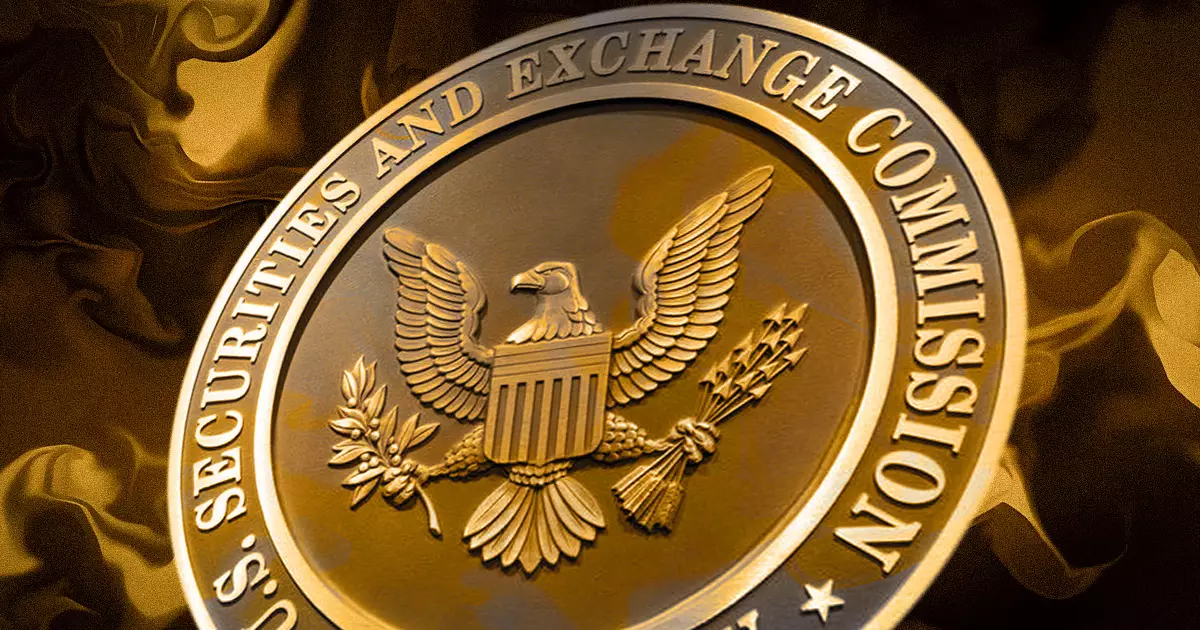U.S. Senator Cynthia Lummis has recently come out in support of Coinbase’s motion to dismiss the U.S. Securities and Exchange Commission (SEC) lawsuit. In her amicus brief filed on August 11, Lummis argues that the court should dismiss the case and defer the development of appropriate crypto regulations to Congress. As a known advocate for cryptocurrencies, Lummis draws attention to the ongoing debates in Congress regarding crypto regulation and asserts that it is the job of Congress, not the SEC, to legislate in this area.
A Constitutional Debate
Lummis highlights that the power to regulate cryptocurrencies lies with Congress, emphasizing that the SEC overstepped its boundaries by attempting to impose regulations beyond its authority. She firmly states that the SEC does not have the power, nor has it been entrusted by Congress, to regulate cryptocurrencies. According to Lummis, the Constitution empowers Congress, not the SEC, to legislate on matters of profound economic and political significance. By seeking to expand its authority, the SEC is attempting to circumvent the political process and claim power that rightfully belongs to Congress.
One of the key points raised in the amicus brief is the SEC’s interpretation of cryptocurrencies as “investment contracts.” Lummis argues that Congress has not given the SEC the authority to redefine securities and expand its influence. By attempting to shoehorn cryptocurrencies into the existing definition of a security, the SEC is exceeding its authority, encroaching on Congress’s lawmaking, and violating the separation of powers. Lummis emphasizes that it is Congress’s role to determine the scope of the SEC’s jurisdiction and develop a regulatory framework for crypto assets.
Lummis asserts that the SEC’s lawsuit against Coinbase is an attempt to influence and control matters that are already being debated in Congress. Several crypto regulation bills are currently under consideration, and most of them propose regulatory oversight by agencies other than the SEC. Lummis argues that the SEC’s claim of authority over the crypto market is not aligned with the ongoing legislative efforts. While Congress may grant the SEC the necessary authority to regulate crypto assets, the decision ultimately rests with Congress, not the SEC.
Looking to the Future
The power struggle between Congress and the SEC in the realm of crypto regulation is far from over. Lummis contends that it is crucial for Congress to exercise its role in shaping the regulatory landscape for cryptocurrencies. As the debate continues, it remains to be seen which agency or agencies will ultimately be entrusted with overseeing the crypto market. However, Lummis is steadfast in her belief that the SEC should not have the final say in this matter.
Senator Cynthia Lummis’ amicus brief supporting Coinbase’s motion to dismiss the SEC lawsuit brings attention to the ongoing debate on crypto regulation in Congress. She argues that it is the responsibility of Congress, not the SEC, to legislate and develop appropriate regulations for cryptocurrencies. Lummis questions the SEC’s authority to redefine securities and expand its influence beyond the boundaries set by Congress. She emphasizes the importance of the separation of powers and highlights that Congress, as the appropriate body, should determine the framework for regulating crypto assets. As the power struggle plays out, it is essential to consider the impact on the legislative process and the future of crypto regulation. Only time will tell how this battle for authority unfolds and who ultimately gains control over the crypto market.

